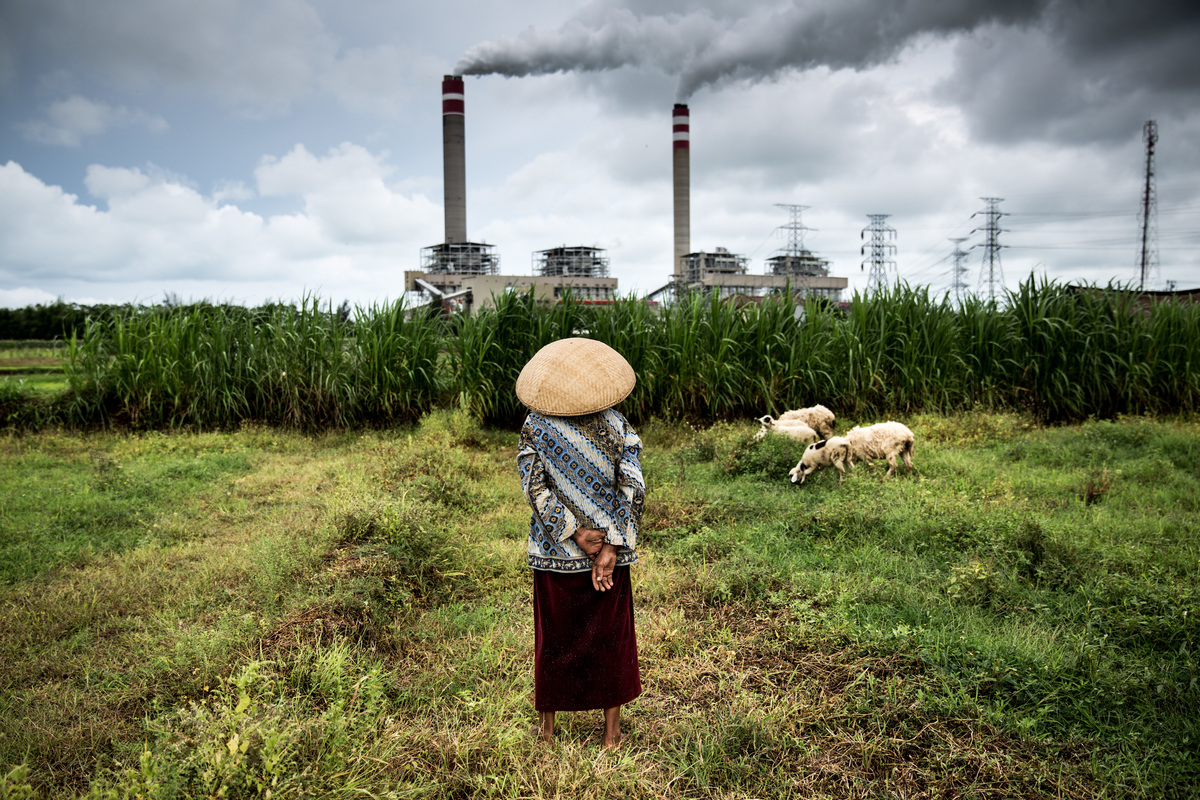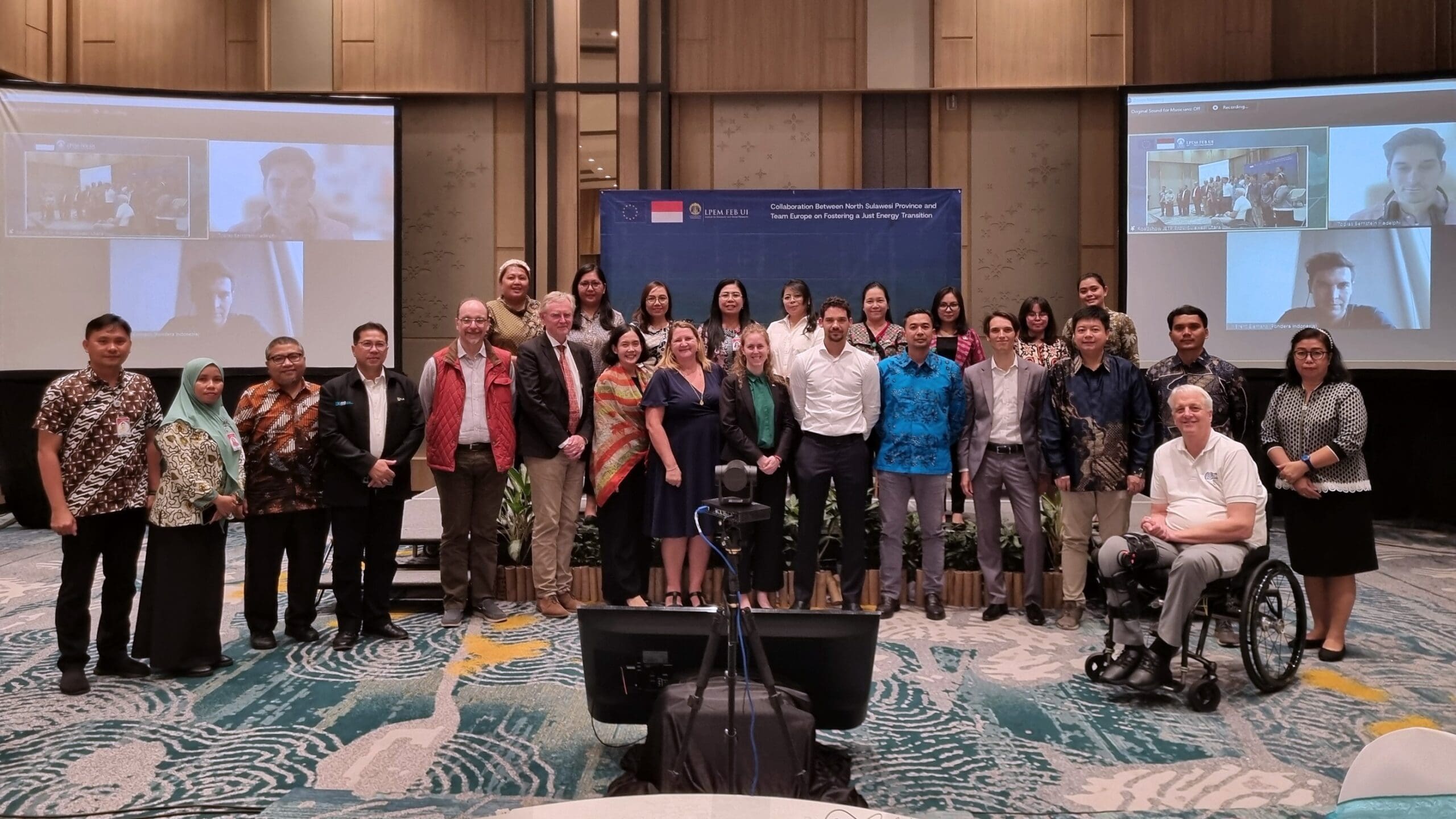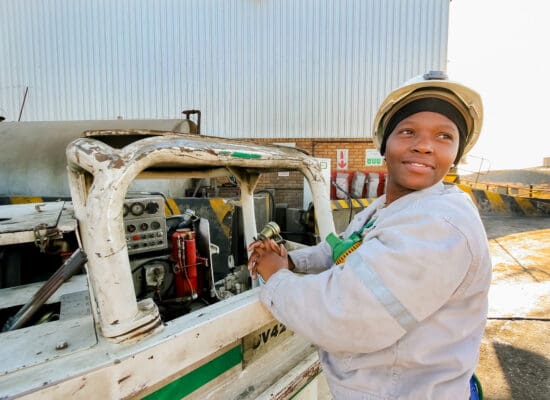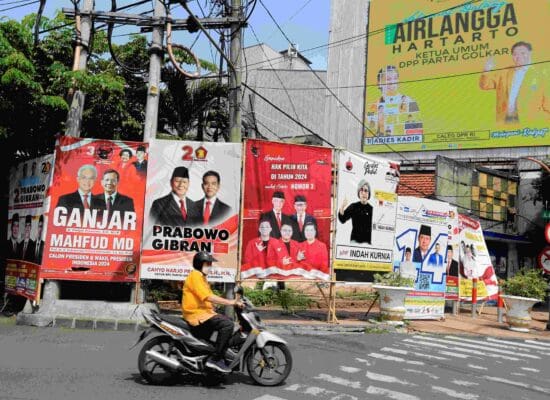Event Summary
How Climate Dialogues are Supporting Just Energy Transition Pathways in Indonesia’s Provinces
Country:
Indonesia,
Organisation:
European Union,

In February 2024, the European Union, through its European Union Climate Dialogues (EUCDs) project, held a set of just energy transition roadshows to facilitate knowledge exchange and foster collaboration between Indonesia and European countries. The roadshow visited four Indonesian provinces: Riau, West Kalimantan, East Java, and North Sulawesi.
Localising Energy Transition
As part of the EUCDs project, the European Union delegation to Indonesia worked with Team Europe Member States and the University of Indonesia’s Institute for Economic and Social Research at the Faculty of Economics and Business to organise a series of roadshows to foster knowledge exchange on just energy transitions. The roadshows brought together national and provincial government officials, domestic and international businesses (including the state electricity company PLN), academic and research organisations, and a pool of experts.
Representatives from each Indonesian province shared their progress towards energy transition and their plans for suitable renewables and decarbonisation opportunities.
A common barrier faced by the provinces is a lack of autonomy over the energy transition in their respective regions. While the central Indonesian government takes the lead in energy planning in Indonesia, it is crucial to collaborate with local governments and leverage their expertise to help address local needs and unlock unique local potential during the energy transition.
Other challenges addressed at the roadshows were institutional and bureaucratic hurdles, technical difficulties, infrastructure constraints, and the disparity between the high investment costs and seemingly low prices of renewable energy. Discussions revolved around the importance of policy reform to accelerate the adoption of renewable energy and reduce the dependence on fossil fuels. The roadshows also highlighted the socio-economic impact of energy transition, including jobs creation, education, and training in green sectors.
Just Transition Principles in Practice
Indonesia’s USD 21.6 billion Just Energy Transition Partnership (JETP) between the country’s government and the International Partners Group (which includes the European Union, Denmark, France, Germany, and Italy, among others) presents many opportunities for accelerating the transition away from coal and towards renewables. The partnership’s Comprehensive Investment and Policy Plan (CIPP) outlines project opportunities and areas of policy reform that can facilitate this transition in a socially just manner.
During the transition, diverse interventions to support justice at the national, regional, and local levels can be implemented. At the regional level, such interventions could include:
- implementing large-scale reskilling programmes (for instance, building renewable training centres),
- connecting JETP projects with efforts to deliver clean electricity to remote communities, and
- providing incentives for economic and livelihood diversification in coal-dependent communities.
In addition, JETP projects should involve local communities and marginalised groups in decision-making, provide decent jobs for local communities, and prioritise small businesses in the supply chain to ensure economic gains will benefit local communities. These approaches to a just transition can help to mitigate the possible impacts of an accelerated energy transition.
During the roadshows, the European Union delegation emphasised the commitment of the European Union and its Member States to support Indonesia and its regions to achieve energy transitions in a just manner. The delegation also presented the European Union’s innovative financing approach for renewable energy and energy transition in Indonesia, as well as the existing and potential collaborations between the European Union and Indonesian provinces.
Representatives from European Union Member States—including Denmark, France, Hungary, Lithuania, the Netherlands, Poland, Spain, and Sweden—presented lessons learned from their experiences, highlighting some key factors for a successful energy transition. A delegate from Agence Française de Développement (AFD), the French Development Agency, also shared insights on just transition principles, which included inclusive planning and governance, proactive and protective public policies, and support for households, workers, and territories.

The EUCDs project has also supported several studies that foster the European Union–Indonesian exchange of knowledge on just energy transition, including research on European experiences and on the potential of offshore wind in Indonesia. Tobias Bernstein, a researcher at Adelphi, a think tank based in Germany, presented an analysis of successful examples of just transition in European countries. These case studies highlighted the importance of long-term policy planning, broad stakeholder engagement, economic and social empowerment, funding mechanisms, vertical integration that includes the regional level, and sound communication.
In addition, the Adelphi study outlined five recommendations for implementing just transition in Indonesia:
- Establish governance mechanisms and dedicate resources to a just energy transition.
- Streamline energy, climate, and sustainability planning to seize new opportunities in a green economy.
- Support impacted workers with skills training that will enable them to find decent jobs outside the fossil fuel sectors.
- Revitalise growth by creating new opportunities to replace traditional industries.
- Guide rural development and ensure that all regions, especially those that are negatively impacted, have the capability to navigate industrial transitions.
Phasing Out Diesel
The University of Indonesia’s Institute for Economic and Social Research also assessed how these justice principles could work in practice, citing the “de-dieselisation” programme that transforms diesel-based mini-grids into hybrid renewable energy systems in remote island regions. The programme is one of Indonesia’s key decarbonisation initiatives and is part of another study in the EUCDs project.
Pak Khoirunurrofik, who leads public finance research at the institute, stressed that the de-dieselisation programme should foster active and inclusive collaboration. This should include providing technical assistance and reskilling opportunities that empower fossil fuel workers to take new green jobs and actively participate in renewable projects, supporting diversification and economic transformation at the local level.
Offshore Wind Potential
Brent Elemans and Robbert Groener from Pondera, a renewable energy consultancy, presented another EUCDs study on the potential for offshore wind power generation in Indonesia, including in the Sulawesi, East Java, and Kalimantan regions. They also made the case for other renewables in West Kalimantan, including hydro, floating solar PV, biomass, and wind power. According to the research, the most promising locations for offshore wind power are Banten and East Java, which have the greatest potential for connection to the Kalimantan grid. Finally, Pondera assessed the potential risks and measures for mitigation, as well as suggestions for developing alternative energy and regulatory frameworks.
Beyond Energy
Lastly, Eric Roeder, a technical specialist on green jobs from the International Labour Organization, highlighted the importance of thinking beyond a vertical approach that focuses solely on transitioning from coal to renewable energy jobs, and instead considering sectors outside energy. For instance, the concept of circularity in a mineral-intensive economy entails extractive activities as well as the need to ramp up recycling initiatives, which may create additional job opportunities.
Roeder explained that while upskilling and reskilling are essential components of a just transition, they may not be necessary in every scenario. For instance, in co-firing or converting coal-fired power plants into waste-to-energy power plants, the work processes may be similar, so minimal training is required. However, moving into other sectors, such as agriculture, may require the development of new skills. In such cases, collaboration with regional and national governments is crucial. It is important to define the desired destination for the economic transformation and identify the specific types of workers and skills needed to support the growth of these new sectors in each province.
As the largest economy in Southeast Asia, Indonesia plays a key role in limiting climate change while promoting social equity. By drawing on lessons learned and carefully navigating the complexities of a just energy transition, the archipelago nation can forge a sustainable and equitable path forwards. Implementing an energy transition that is just and inclusive comes with issues and challenges. To navigate these, all stakeholders need to be committed to the agenda and promote continuous collaboration and dialogue between local and central stakeholders, including the European Union and Indonesia, that also involves domestic and international businesses.
Read the full report on EUCDs’ just energy transition recommendations for Indonesia:
 Loading...
Loading...
Stay Informed and Engaged
Subscribe to the Just Energy Transition in Coal Regions Knowledge Hub Newsletter
Receive updates on just energy transition news, insights, knowledge, and events directly in your inbox.


